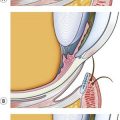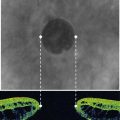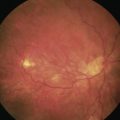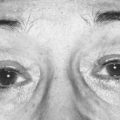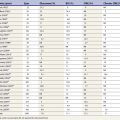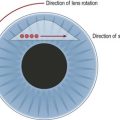CHAPTER 3 Principles of surgery
Principles of surgery
To this point we have considered some of the matters that lead to the surgical decision. We have also discussed the general principles that apply to the surgical experience in its broadest sense. The patient’s point of view has been stressed. Here we wish to deal more specifically with the principles and practice of surgical technique itself (Box 3.1)1–3.
Good preparation
To be well-prepared requires knowledge of the desired goals, the patient, the materials used, the techniques employed and oneself (see page 34). It also requires practice, practice, and more practice. While every surgical episode is different from every other, there is, to all surgical events, a fundamental core. The great surgeon, like the great athlete or chef, must be able to perform these basic core motions so well that they are done unconsciously. In the midst of a surgical procedure, attention cannot be diverted from what is happening to consider how a knot is to be tied or how remaining lens cortex is to be removed. Those activities must be so fully mastered that they have become ‘second nature’. While it is true that surgeons in training can perform a surgery in a way that the results are satisfactory, it is also true that better surgeons tend to have better outcomes than those less competent4–6. More experienced surgeons tend to have better results than learning surgeons. Whereas visual acuity may be 20/60 shortly after an adequately performed penetrating keratoplasty, it is more likely to be 20/40 or perhaps even 20/20 when done by a superb surgeon who has ‘been there’ hundreds of times before. ‘Occasional’ surgeons rarely have results as good as experienced surgeons who continue to hone their skills with constant practice4–6.
One aspect of the well-prepared athlete is pre-game or pre-race visualization7–10: the course, the start, the way the opponent will perform, the rare but real mishaps that may occur, the quirks of the referees, the failure of the equipment, the need to focus, the finish line – all of these aspects are visualized from start to finish so that when they occur during the race, the athlete has anticipated them and knows exactly how to respond, so also for the surgeon.
Control
A central surgical principle is that of control11–13. Control refers to the entirety of the surgical event. The surgeon must be in control of the whole procedure, including what happens prior to the actual operative procedure, what happens in the operating room, including the surgical team, the nursing staff, the anesthetist and the appropriate surgical technique. This requires having the requisite knowledge of the patient and the patient’s disease.
A necessary part of surgical training is experience with complications and unexpected events14–17. Good surgeons do not become flustered or shaky when problems develop. They know what to do because they are well-prepared. They know when an immediate step needs to be taken such as closing an open incision at the first sign of an expulsive suprachoroidal hemorrhage. Because they are alert and observant and in control they notice premonitory signs of concern, such as the patient moving, changes in blood pressure, wobbliness of the lens, or shallowing of the anterior chamber. In such cases they stop, decide what action is needed and then take the appropriate action. It is usually best to slow the entire pace of the surgery at such times. It is better to do nothing rather than the wrong thing.
Finally, the surgeon must be in control of himself or herself. This is probably the single most important surgical principle. Good surgeons, like good athletes, know their limitations and their abilities18. They are not timid – cutting tissues too slowly and causing additional trauma, or placing sutures so superficially they fail to hold. They are not over-confident – trying to remove a dropped lens from the vitreous through the pupil or not referring to a more skilled colleague. They do not speed up because the operating room supervisor tells them they are taking too long. They insist that the first step is right before proceeding with the second. They do not overlook complications or deny them because they are afraid or emotionally insecure, but rather recognize them and take the necessary steps to correct them. They know they are in control of the entire surgical event, because they exercise control over it and themselves.
Minimization of trauma
A fourth surgical principle is minimization of trauma. Damage to the patient and to the patient’s tissues occurs in many ways (see Box 3.2). Ironically, operating with excessive caution may actually result in a greater degree of trauma. The prolonged procedure that often characterizes the timid surgeon subjects the patient to the irritating components of irrigating solutions, airborne infection, increased contact with possibly contaminated instruments, stresses of lying immobile, and the effects of increased amounts of anesthetic agents. Furthermore, tissues that are gingerly cut will be sectioned less clearly than is optimal. On the other hand, the excessively aggressive surgeon may inflict trauma by cutting more deeply or more extensively than required, by crushing tissue, by failing to utilize proper plans, by allowing bleeding to persist, and by being unrealistic regarding his or her own surgical ability.
1 Mulholland M, Lillemoe K. The Greenfield’s Surgery: Principles and Practice, 4th edn. USA: Lippincott Williams & Wilkins; 2005.
2 Skandalakis JE, Skandalalis PN. Surgical Anatomy and Technique, 2nd edn. Atlanta: Springer Science; 2000.
3 Stokes D. Basic Surgical Skills and Techniques, 1st edn. Tunbridge WellsUK: Anshan Publishers; 2000.
4 Mittendorf EA, McHenry CR. Complications and sequelae of parathyroidectomy and an analysis of surgeon experience and outcome. Surgical Technology International XII. 2003:152-157.
5 Connor MA, Knape RM, Oltmanns MH, et al. Trainee glaucoma surgery: experience with trabeculectomy and glaucoma drainage devices. Ophthalmic Surg Lasers Imaging. 2010;41(6):523-531.
6 Vickers AJ, Savage CJ, Bianco FJ, et al. Surgery confounds biology: The predictive value of stage-, grade- and prostate-specific antigen for recurrence after radical prostatectomy as a function of surgeon experience. Int J Cancer. 2011;128(7):1697-1702.
7 Cumming J, Hall C. Deliberate imagery practice: Examining the development of imagery skills in competitive athletes. J Sport Sci. 2002;20:137-145.
8 Feltz DL, Landers DM, Becker BJ. A revised meta-analysis of the mental practice literature on motor skill learning. In: Druckman D, Swets J, editors. Enhancing Human Performance: Issues, Theories and Techniques. Washington, DC: National Academy Press; 1988:1-65.
9 Ryan DE, Simons J. Cognitive demand, imagery and frequency of mental rehearsal as factors influencing acquisition of motor skills. J Sport Psychol. 1981;3:35-45.
10 Vandall RA, Davis RA, Clugston HA. The function of mental practice in the acquisition of motor skills. J Gen Psychol. 1934;29:243-250.
11 Mazzocco K, Petitti DB, Fong KT, et al. Surgical team behaviors and patient outcomes. Am J Surg. 2009;197(5):678-685.
12 Lingard L, Regehr G, Orser B, et al. Evaluation of a preoperative checklist and team briefing among surgeons, nurses, and anesthesiologists to reduce failures in communication. Arch Surg. 2008;143:12-18.
13 Meijer D. Editorial. J Laparoendoscop Adv Surg Tech. 2000;10(4):209.
14 Haynes A, Weiser TG, Berry W, et al. A surgical safety checklist to reduce morbidity and mortality in a global population. N Engl J Med. 2009;360:491-499.
15 Gawande AA, Thomas EJ, Zinner MJ, et al. The incidence and nature of surgical adverse events in Colorado and Utah in 1992. Surgery. 1999;126:66-75.
16 Dindo D, Demartines N, Clavien PA. Classification of surgical complications: a new proposal with evaluation in a cohort of 6336 patients and results of a survey. Ann Surg. 2004;240:205-213.
17 Gawande A. Complications: A Surgeon’s Notes on an Imperfect Science. New York, NY: Metropolitan Books; 2002. p. 269
18 Porter EM. Better surgery and better surgeons. N Engl J Med. 1950;242(4):115-118.

